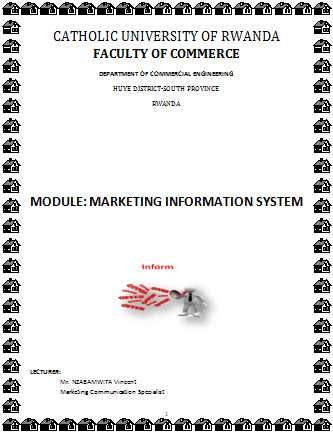To understand the proper role of information systems one must examine what managers do and what information they need for decision making. We must also understand how decisions are made and what kinds of decision problems can be supported by formal information systems. One can then determine whether information systems will be valuable tools and how they should be designed.
The module opens with a wide-ranging discussion of the functions of management, the various types and levels of decision that marketing managers must make.
Managers play at least three separate roles: interpersonal, informational and decisional. MIS, in electronic form or otherwise, can support these roles in varying degrees. MIS has less to contribute in the case of a manager's informational role than for the other two.
Three levels of decision making can be distinguished from one another: strategic, control (or tactical) and operational. Again, MIS has to support each level. Strategic decisions are characteristically one-off situations. Strategic decisions have implications for changing the structure of an organization and therefore the MIS must provide information which is precise and accurate. Control decisions deal with broad policy issues and operational decisions concern the management of the organization's marketing mix.
Managers at all levels must make decisions on behalf of a company. The difference between decisions at various levels lies in the scope of the choices made. Long-term decisions affecting the company as a whole belong to the highest management levels, while decisions affecting day-to-day operations fall to bottom management. All decisions relate directly or indirectly to broader management functions: planning, organizing, leading, staffing and controlling. Different management levels spend more time on certain functions than on others.
A marketing information system has four components: the internal reporting system, the marketing research systems, the marketing intelligence system and marketing models. Internal reports include orders received, inventory records and sales invoices. Marketing research takes the form of purposeful studies either ad hoc or continuous. By contrast, marketing intelligence is less specific in its purposes, is chiefly carried out in an informal manner and by managers themselves rather than by professional marketing researchers.

- Teacher: Mr. Vincent NZABAMWITA
